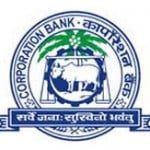ALSO READ
Supplies from Sun’s Halol facility likely to improve in coming quarters Sun Pharma, SPARC dip as USFDA revokes approval for epilepsy drug Sun Pharma: buy or sell? US FDA revokes approval to Sun Pharma’s anti epilepsy drug No material impact of US court order, says Sun Pharmaceuticals (spot)
The Sun Pharma stock, declining since October 27, touched its 15-month intra-day low of Rs 746, before closing almost six per cent down at Rs 757 on Monday. While Sun had recently warned of a decline in profits due to integration of Ranbaxy, the 46 per cent profit decline in the September quarter was expected. But, the increased concern on Halol plant has unnerved the market.
The Halol plant has been under US Food and Drug Administration (FDA) observations for long now, and the company was seeing stress on fresh approvals for launches filed from the plant. However, news that this plant has got an OAI (Official Action Indicated) indicates higher probability of a warning letter by FDA.
While Sun has informed investors the company has given an original remediation plan for Halol plan to FDA and kept the agency updated on the progress “at great frequency”, with elevated concerns on US business and its potential impact on profits in FY16, analysts have a neutral rating on the stock. Though looking at the synergy benefits after Ranbaxy integration, analysts’ target prices are at Rs 900 and higher, significant upsides in the near-term are unlikely.

The September quarter results are also far from exciting. Sun’s US sales, which contributed 48 per cent (or $510 million) to overall revenues, declined 28 per cent year-on-year. This was due to competitive pressure on some products, supply constraints at Halol plant and high base of last year’s quarter.
While Sun has other FDA-approved plants, its ability to launch products after getting site-transfer approvals will be looked at keenly by the Street. Analysts at Reliance Securities estimate product sales at $260 million, a 75 per cent Ebitda (earnings before interest, tax, depreciation, and amortisation) margin from its expected launch in February, but uncertainty on other product launches remain. US subsidiary Taro disappointed on volume growth in the September quarter.
India sales, which contribute 26 per cent to revenues, at Rs 1,819 crore, grew one per cent year-on-year in the September quarter. Sun says it was on the back of inventory control, withdrawal of bonus offers, and a relatively soft season in the acute segment. Sun’s stock price is likely to remain under pressure in the near term.





